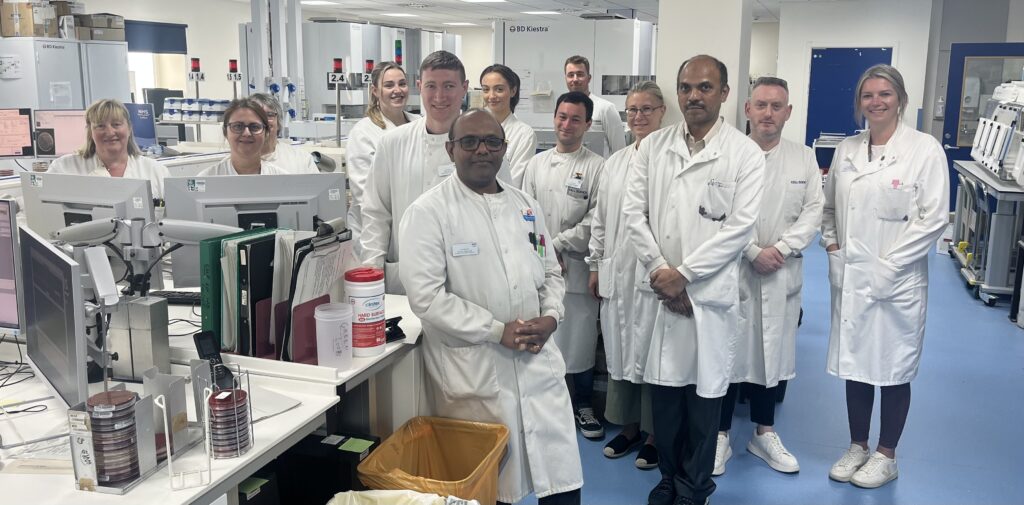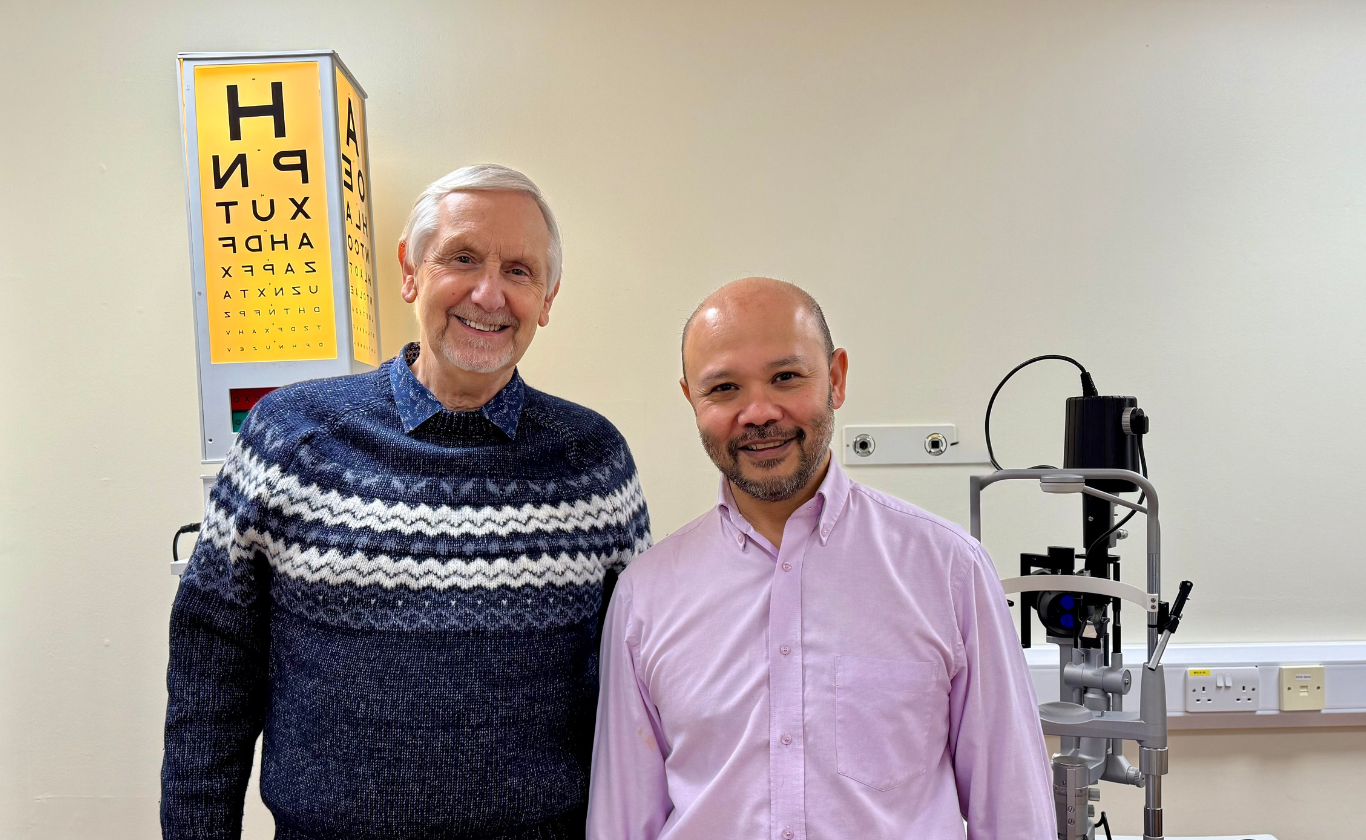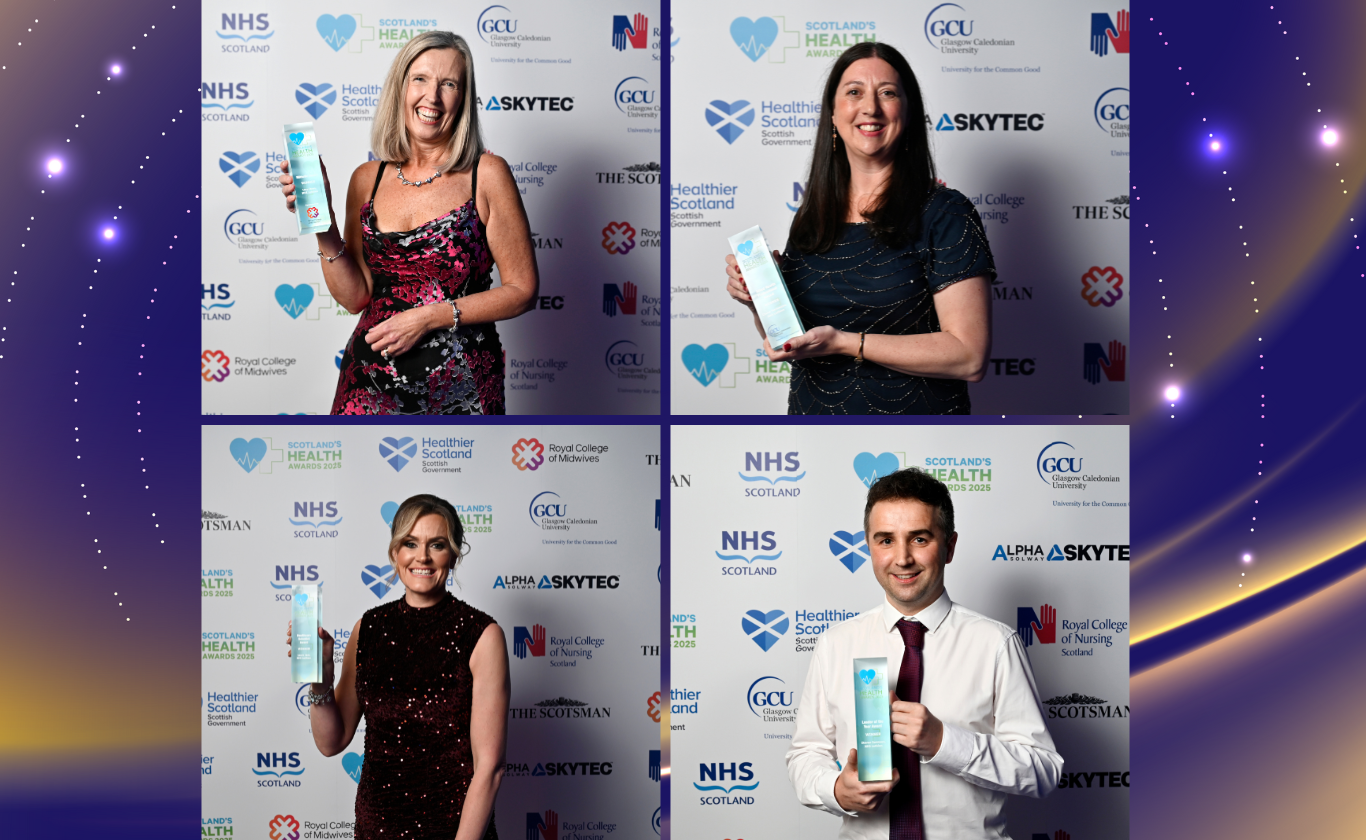Have you ever wondered what our staff get up to in the laboratories? This Biomedical Science Day (Thursday 8 June) our laboratory staff, in the Royal Infirmary of Edinburgh, have given us an insight into the type of work they carry out, how they have worked their way into their current role and the best part of their job.
David MacFarlane
What is it you do in your day to day job?
I’m a Biomedical Scientist in the Bacteriological lab at the Royal Infirmary of Edinburgh. This involves analysing a range of routine and precious samples following culture, sensitivity, microscopy principles and using specific molecular testing when required.
How did you get into the role?
I started with a HNC Applied Science before doing the BSc in Applied Biomedical Science at uni. Before graduating uni I started work as a Medical Laboratory Assistant. Last summer I then started my role as a Band 5 Biomedical Scientist.
What’s the best part of your job?
There is a good mixture of people that can bring different perspectives to day-to-day work.
Sophie McCaw
What is it you do in your day to day job?
I am responsible for the testing and reporting of clinical samples. I examine results from analysers and read plates from clinical samples which have been inoculated the day before. I also validate samples for the relevant testing that is required.
How did you get into the role?
I did a BSc (Hons) in Applied Biomedical Science at Glasgow Caledonian University. During my time at university I undertook a placement in Microbiology and loved it. From that moment on I knew microbiology was the department I wanted to work in. At school I was always interested in science and wanted to find a career that allowed me to pursue this passion. After attending an open day at GCU I realised that a career in Biomedical Science was the path I wanted to go down.
What’s the best part of your job?
One of the best things about my job is the colleagues I get to work with on a daily basis. There is always a fun atmosphere within the lab and the more experienced members of staff are always willing to help newer staff with any questions. I also enjoy being able to pursue my love for science.
Sophie Primrose
What is it you do in your day-to-day job?
I undertake a range of duties within all areas of the lab, from sample preparation, inoculation and culture, to assigning lab specific barcodes to samples and entering into our laboratories’ information management system. I ensure correct tests have been requested and as such the sample goes on to get processed as required. I also work with and troubleshoot all laboratory equipment and analysers as well as assisting in training and mentoring of new staff.
How did you get into your role?
I studied BSc (Hons) Biomedical Sciences at The University of Edinburgh and in my final year I attended a talk hosted by NHS Lothian in which they discussed biomedical sciences within the NHS. I found the patient centred role ticked all the boxes I wanted for a career and as such I became a Biomedical Support Worker. I am now undertaking more studying to become a Biomedical Scientist within the lab.
What is the best part of your job?
Aside from the wonderful colleagues I have and the positive atmosphere within the lab, I love that every day I get to see something different or unusual, and the variety of samples and conditions we deal with means I am always learning something new and people are always willing to teach me more and more about bacteriology.
Jassem Birmingham
What is it you do in your day to day job?
I validate results and work with medical staff to decide how best to treat the patient. I also use the microscope and work with routine and urgent samples.
How did you get into the role?
I applied for the Biomedical Science post after studying at university, I was always keen to work within a hospital laboratory for the NHS.
What’s the best part of your job?
Working with bacteria is more fun than you may think! I still enjoy looking at them under the microscope and seeing the different shapes and colours they can take.
Adrian Williams
What do you do in your day to day job?
I am a Biomedical Scientist in Microbiology and what I do varies on a daily basis. This generally involves studying the growth of microorganisms such as bacteria, fungi and parasites that cause disease. As part of this I analyse samples ranging from tissues to wound swabs and perform various scientific tests to identify pathogens and test them against a wide range of antibiotics and antifungals to help clinicians diagnose and treat patients.
How did you get into the role?
I first completed a Bachelor of Science (BSc) Biomedical Sciences at the University of Manchester. I then took on work as a locum Biomedical Support Worker in the Human Papillomavirus (HPV) laboratory at the Manchester Royal Infirmary before obtaining a Trainee Biomedical Scientist position at the Cumberland Infirmary in Carlisle where I completed my IBMS registration portfolio. I am now currently working at the Royal Infirmary of Edinburgh where I am completing my specialist portfolio in Microbiology.
What is the best part of your job?
There are two aspects of my job that I enjoy quite a lot. Firstly, I enjoy the scientific element of my job. I enjoy learning how the equipment and tests work and the methods they employ. Secondly, I also find great satisfaction in knowing that what I do daily helps to improve the quality of life for thousands of people.
Valene Mitchell
What is it you do in your day to day job?
My role within bacteriology involves carrying out routine and urgent clinical analytical work within the laboratory, using laboratory equipment and analysers. I analyse the laboratory results along with undertaking the appropriate follow-up actions when required.
How did you get into the role?
After redundancy I decided to go back to education to retrain to become a Biomedical Scientist and while I was at university studying Biomedical Science, I successfully gained a summer placement as a Biomedical Support Worker within Bacteriology which I loved. Then, fortunately after the summer holidays I was kept on as bank staff – Biomedical Support worker where I worked part time in my final year of university. Before I graduated, a Biomedical Scientist role came up within the department and I got the job. I am now moving onto a Trainee Specialist role.
What’s the best part of your job? The best part of my job is the variety, such as the different types of samples that we process and the variety of disease-causing organisms that we investigate for























